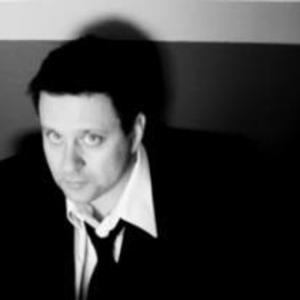The following morning, having somehow managed to return to my slumbers and having awoken at the usual time, I woke up and cut my hair in front of the mirror. Back on the Andersen Estate, we were too poor to afford to go to the barber’s and so, naturally, I had to do the haircuts myself, both for me and for my family using a sharp pair of household scissors – the sort that sort of give away the fact that they’re made of metal. Our hairstyles usually would turn out to be a complete mess, after which Dad would beat me and send me away from the room, and then go to work at the tea factory, where he would be sneered at by his colleagues, and then he would come home and… no, it was too awful to think about. It was awful to think about then, and it still is now. As I cut my hair, I found myself thinking back to the corpses, and just before I had finished, I dropped the scissors. They fell to the floor with a great clatter, such a clatter that I was sure it’d wake the house up. I could only stare into the mirror as I remembered this horrific sight, my eyes wide with the horror, my jaw having dropped, and, while my hair looked as messy as it always did with such a haircut, and although my figure was still rather skinny (I had barely eaten anything since arriving in the village), none of these were particularly significant.
I went down and found Clarence slumped on the sofa, snoring away as though he’d come home from the pub late one night completely drunk. The way he snored was probably the way a whale snores when it is sleeping under the sea. It scared me a little, but then I’ve always found sperm whales as a species, terrifying. I used to have nightmares where I was floating through space, and a whale would just swim out of nowhere and gobble me up. The figure on the sofa was recognisably Clarence, but covering his face was some sort of strange mask. It wasn’t made of papier-mache, like the masks we used to make at that hellhole of a school, nor indeed was it a scaramouche mask, nor the ones kids wear these days. It was obviously an African tribal mask, like the kinds the African people use when they’re chanting their strange rituals.
I walked over to Clarence’s comatose body and gently nudged him. He fell off the sofa and stumbled around for a moment. He wandered to the kitchen, like a zombie in a daze, and made himself some tea. I ran after him and forcibly removed his mask. There was his face: seemingly quite kind. He yawned.
“Thanks, lad,” he said. “How long have I been asleep?” he added, yawning.
I shrugged. “I dunno. All I do know is that you’ve probably overslept. Where on earth were you all night? I came back to the cottage and you weren’t there.”
He shook his head. “I can’t tell you that.” He sighed, and continued to ramble. “I really can’t tell you that. Nobody should know, nobody. They’ll kill me if you find out. Not literally, mind you – they never kill anyone here – but, um, just metaphorically speaking, you understand.”
Here I crossed my arms and stood looking at him fiercely. “Somehow, I’m of the opinion that I can’t trust any of you. I noticed the head of a dead dog in Mr Harris’ toilet yesterday. I heard some form of poetry recital going on up in the forest. I have a damned right to know what you’re up to, so that I can be assured that I’m safe.”
It was here that the grumpiness that often comes with waking up in the morning began to set in for Clarence. He rounded on me, anger in his eyes. “Now you listen here, you little runt,” he said, and for some reason he sounded more aggressive than he usually did. “If you have any sense whatsoever, you will stop this investigation. You’re meddling in things which don’t concern you and it is not appropriate. Understand?”
The ferocity in his voice was enough to cow me into submission. “Yes, sir,” I muttered, meekly. One would think he was my dad, the way he yelled at me like that. I suppose that being reminded of him was what did the trick. Clarence raised the mug to his lips and drank from it. He inhaled the vapour of the tea and sighed, with the knowledge that he was well-served.
I don’t really need to describe my weekly schedule, because you’re likely already accustomed to it by this point. I did some errands for the villagers and helped certain things. However, one thing I will note was my turn helping out at the village bakery. The bakery was just down the road from the post office, and it was run by a rather plump man known as Mr Barraclough, who had a very small toothbrush moustache, which was so small you could barely see it. He had one hair on the whole of his shining bald head, which gleamed like fire in the night. He had two daughters, both of whom were in their mid teens: Cassandra and Elizabeth. Both of them were very beautiful (although not necessarily as beautiful as someone older than them) but they were clothing that you’d swear came out of the nineteen-forties.
When I reported for work outside the bakery, dressed solely in my normal clothes, Mr Barraclough was standing outside to meet me, dressed in his usual work apron. We met each other at the back of the bakery, where I would usually enter during a day like today. The bakery was a small building, with a small yard behind it where the baker’s van was usually parked. The building was made of thick stones, and the roof was made of black slate. He looked at me with a sort of foreboding expression.
“I suppose you’re the one the Council of Elders took in,” he said. He tossed his head towards the bakery. “Get on with it, boy, or you’ll be late.”
“Late?” I asked, understanding that this obviously meant far more than just “late for work”. “Late for what?”
He stared at me, menacingly. “What’s your name, boy?”
“Erm, Brooker. Harry Brooker.”
“Well, as in the late Brookerharrybrooker, obviously.”
I only muttered a low “Yes, sir” and shuffled past him into the bakery. I knew what he meant, but I also had a feeling that he didn’t take it as a joke. If anything, he seemed far more hostile towards me than he should be. I went into the bakery, and was given a white apron to wear over my usual clothes. The interior of the bakery was as you would expect: a kitchen-like area with a stone floor, and several white walls, against which were placed several trays. At the back was a very old-fashioned stone oven, the kind that has a black covering that you could place over it to keep the fire from spreading to the rest of the bakery.
Anyway, as I was working in the bakery, I couldn’t help but notice, as I was raiding the fridge, by which I mean the store-room (since apparently, they didn’t have fridges in that part of the village), that there was what looked eerily like a human brain on one shelf of the fridge. Next to it was a human hand, which quite clearly looked as though it had been severed from the limb which originally held it. The very sight of it made me feel sick. I brought some of the usual ingredients from the fridge to Mr Barraclough, and he congratulated me before cracking some eggs and whisking them. Cassandra was nearby, kneading the bread dough on a worktable, and after she was done, she flattened it with a rolling pin.
“If it’s all right,” I asked, “what’s the hands and the brain for?”
Mr Barraclough scoffed. “Meat pies,” he said. “What did you think they were for?”
I found this very odd, but didn’t really question them too much. I didn’t know much about the world, and I still don’t now, but even I knew that human body parts were never meant to be cooked in meat pies. I was given the responsibility of packing boxes, of course, to weigh them. If they proved too heavy due to an overload of sweets inside, I would remove at least one and weigh it again on the scales to see if it did weigh the right amount.












Comments (1)
See all